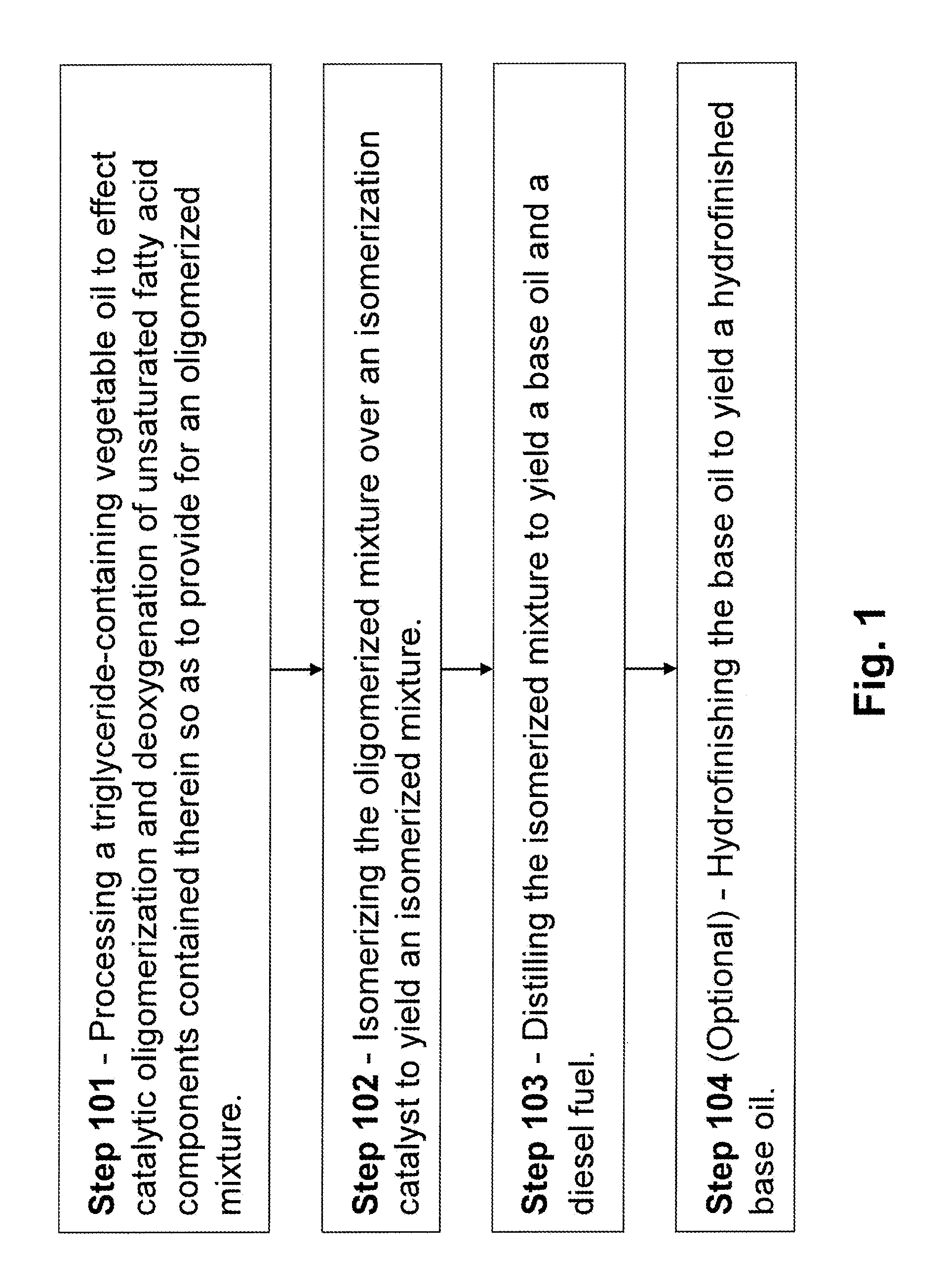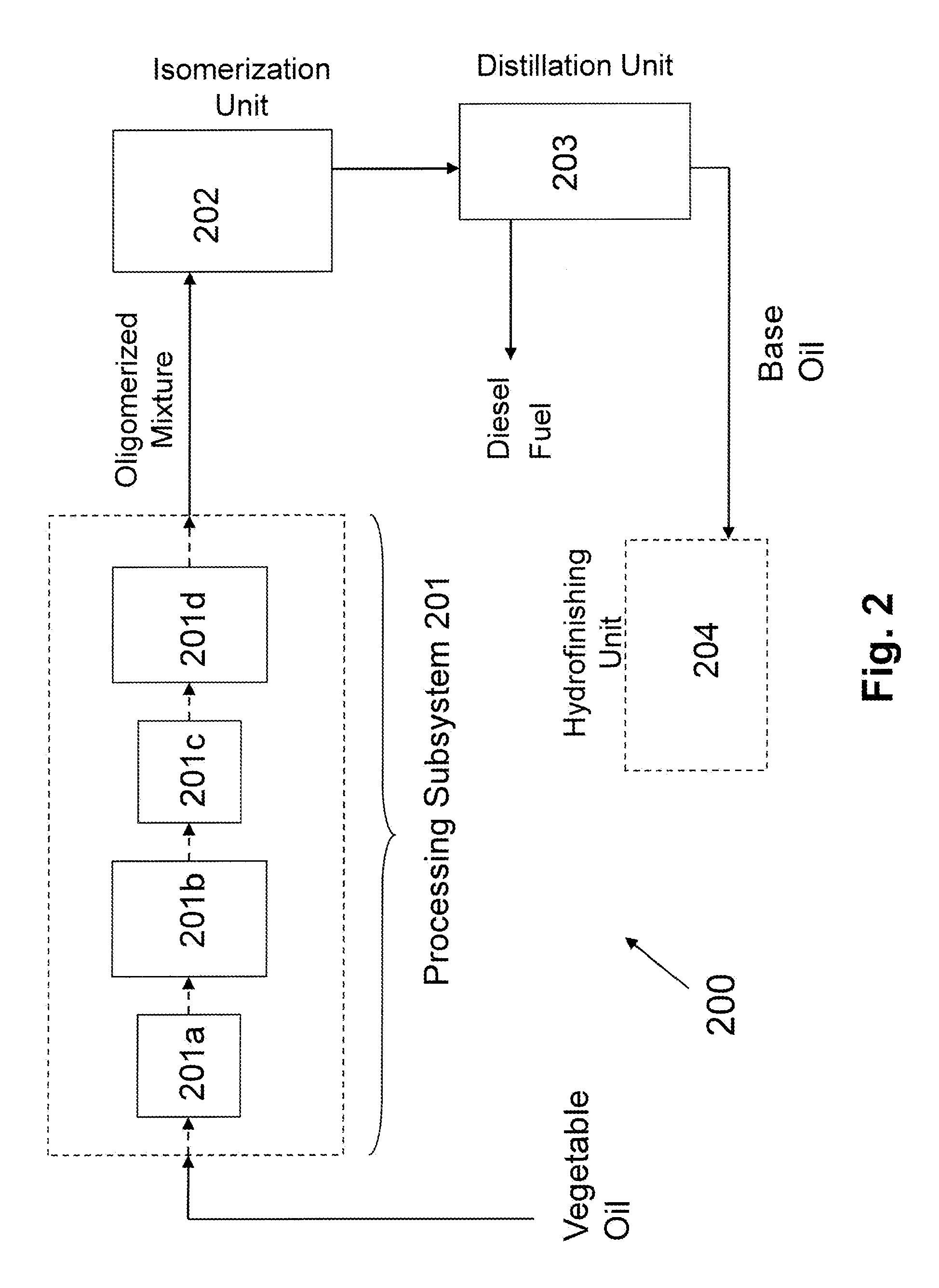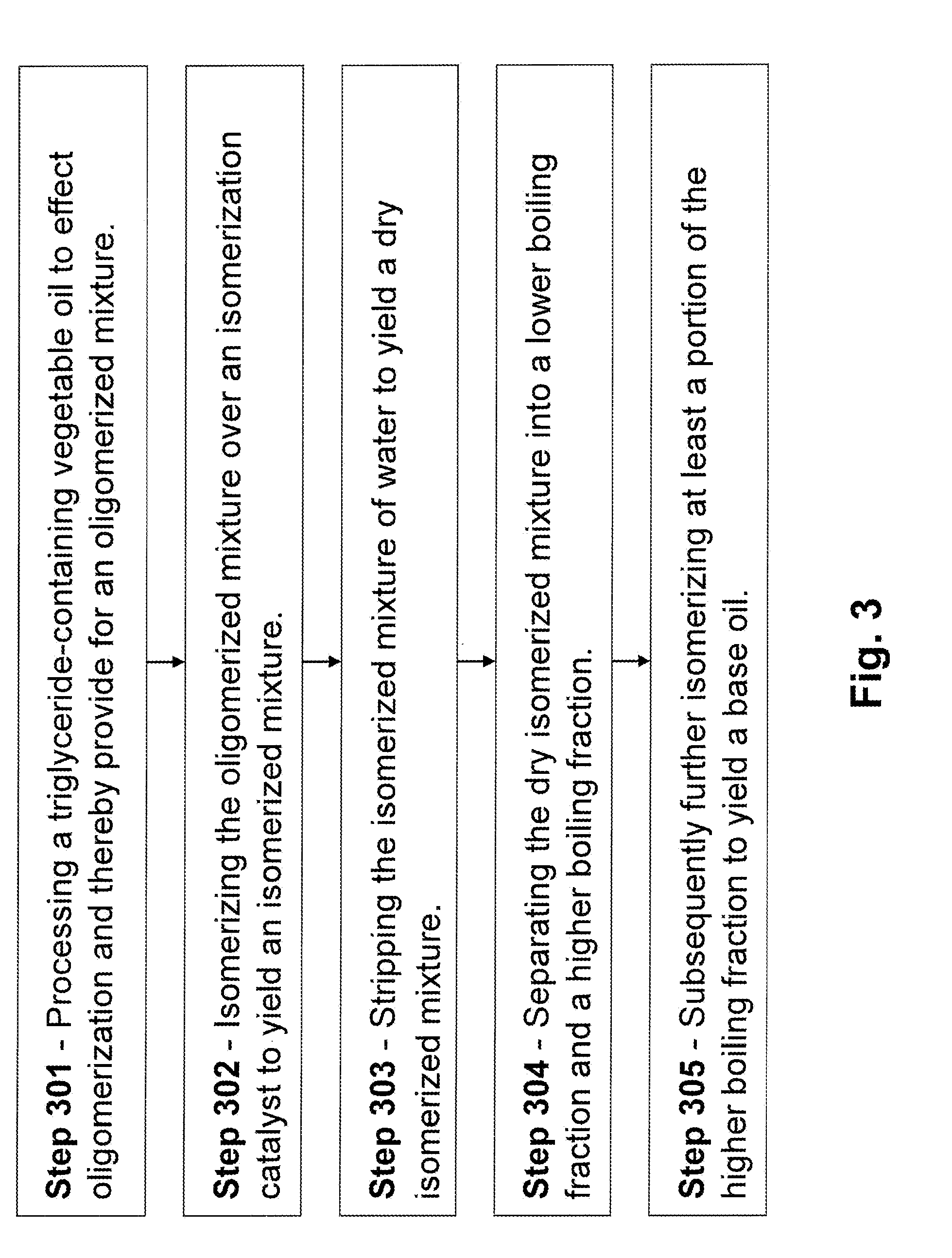Conversion of vegetable oils to base oils and transportation fuels
a technology of base oil and vegetable oil, which is applied in the direction of biofuels, hydrocarbon oil treatment products, fuels, etc., can solve the problems of affecting the use affecting the cold flow of conventional biodiesel fuels, and destroying carbon deposits on the engin
- Summary
- Abstract
- Description
- Claims
- Application Information
AI Technical Summary
Benefits of technology
Problems solved by technology
Method used
Image
Examples
example 1
This Example serves to illustrate a method of processing a vegetable oil en route to forming a transportation fuel and a base oil, in accordance with some embodiments of the present invention.
Canola oil was hydrotreated over a Ni—Mo / Al2O3 hydrotreating catalyst under the following conditions: 1000 psig, 5000 scf / bbl H2, 1.66 LHSV (liquid hourly space velocity), and 610° F. This reactor was followed by a second reactor containing a Pt on SM-3 sieve isomerization catalyst, also at 1.66 LHSV and a temperature of 700° F. Processing conditions effected a “conversion yield” as follows: 92 weight percent of the canola oil was converted from 650° F.+ to 650° F.−. Upon distillation, the fraction boiling below 650° F. (650° F.−) was predominately a paraffinic diesel, while the fraction boiling above 650° F. (650° F.+) was comprised primarily of oligomerized (primarily dimerized) species (gas chromatography / mass spectral analysis yielding a mass distribution centered around a C36 paraffin (alk...
example 2
This Example serves to illustrate a method of processing a vegetable oil en route to forming a transportation fuel and a base oil, wherein such processing involves catalytic oligomerization employing a clay catalyst—prior to any hydrotreating, in accordance with some embodiments of the present invention.
Canola oil was processed over a stacked bed catalyst system of an acid-treated montmorillonite clay catalyst (Filtrol Grade 24, available from Engelhard) followed by a Ni—Mo on Al2O3 hydrotreating catalyst. Reaction conditions included 1000 psig total pressure and 5000 SCF / bbl H2. Reactor temperature was 650° F. over the clay catalyst and 575° F. over the hydrotreating catalyst. Liquid hourly space velocity (LHSV) was 2.0 over the clay catalyst and 1.0 over the hydrotreating catalyst. At these conditions, the yield of diesel (350-650° F.) was 72.3 wt % (mostly C18), and the yield of 650° F.+ (mostly C36 as determined by gas chromatography) was 12.9 wt %, with the remainder being 350°...
example 3
This Example serves to illustrate a method of processing a vegetable oil en route to forming a transportation fuel and a base oil, wherein such processing involves catalytic oligomerization employing a zeolite catalyst in advance of any hydrotreating catalyst, in accordance with some embodiments of the present invention.
Canola oil was processed over a stacked bed catalyst system of a Beta zeolite catalyst followed by a Ni—Mo on Al2O3 hydrotreating catalyst. The Beta zeolite catalyst, in the hydrogen form, contained 80 wt % Beta zeolite (SiO2 / Al2O3 mole ratio of 30) and 20 wt % Al2O3 binder. Reaction conditions included 1000 psig total pressure and 5000 SCF / bbl H2. Reactor temperature was 600° F. over the Beta zeolite catalyst and 575° F. over the hydrotreating catalyst. Liquid hourly space velocity (LHSV) was 2.0 over the Beta zeolite catalyst and 1.0 over the hydrotreating catalyst. At these conditions, the oxygenate-free yield of diesel (350-650° F.) was 81.9 wt % (mostly C18), an...
PUM
| Property | Measurement | Unit |
|---|---|---|
| Concentration | aaaaa | aaaaa |
Abstract
Description
Claims
Application Information
 Login to View More
Login to View More - R&D
- Intellectual Property
- Life Sciences
- Materials
- Tech Scout
- Unparalleled Data Quality
- Higher Quality Content
- 60% Fewer Hallucinations
Browse by: Latest US Patents, China's latest patents, Technical Efficacy Thesaurus, Application Domain, Technology Topic, Popular Technical Reports.
© 2025 PatSnap. All rights reserved.Legal|Privacy policy|Modern Slavery Act Transparency Statement|Sitemap|About US| Contact US: help@patsnap.com



